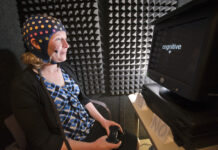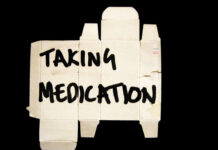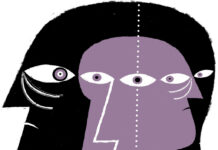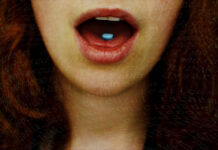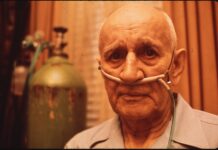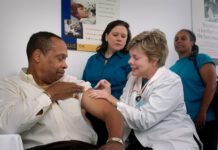Autism’s Drug Problem
From Scientific American: Many autistic children are prescribed multiple psychiatric medications, which can lead to serious adverse effects and are often ineffective.
"Multiple diagnoses lead to...
Psychosis Diagnosis Linked With Lower Rates of Exercise
A new study finds that for those experiencing symptoms associated with psychosis, a low-level of physical activity is associated with receiving a diagnosis of a psychotic disorder.
We Need to Talk About Frankie
In this piece for The Cut, Dyan Neary details the story of Frankie Perry, a man whose life was forever altered by being prescribed an...
Study Explores Cognitive Effects of Antipsychotics
Reduced usage of antipsychotics in first-episode psychosis was associated with improved executive functioning.
Veterans with both PTSD and Dementia More Likely to be Prescribed Antipsychotics
Researchers found that veterans with both conditions had higher odds of being prescribed second-generation antipsychotics than those presenting with just PTSD.
Danish Study Finds Better 10-year Outcomes in Patients Off Antipsychotics
Study finds that 74% of patients with a psychotic disorder off antipsychotics at end of 10 years are in remission.
Study Connects Environmental Risk Factors and Psychosis
A meta-analysis of known risk factors for psychosis finds elevated risk with the presence of childhood trauma, adverse life events, and affective dysfunction.
Nutrient Supplementation Improves Outcomes for Patients Diagnosed with Schizophrenia
A review article and meta-analysis of 18 articles published in the journal of Psychological Medicine reported effects of vitamin and/or mineral supplements on psychiatric symptoms in people diagnosed with schizophrenia. The study provides evidence of the beneficial effects of taking certain vitamins and minerals for improving symptoms associated with schizophrenia.
Patients More Likely to Refuse Drug-Only Treatment, Study Finds
The American Psychological Association (APA) recently published a study finding that patients assigned to drug-only treatments were more likely to refuse treatment, and more likely to drop out before treatment completion, than patients assigned to psychotherapy only.
Abilify Drives Users to Binge on Risky Behaviors
From Daily Mail: The anti-psychotic drug Abilify is at the center of hundreds of lawsuits accusing the drug of dangerous side effects including compulsive gambling,...
New Medications Fail to Show Efficacy for Alzheimer’s Disease
Three phase III clinical trials assessing the efficacy of Lundbeck’s investigational drug idalopirdine for Alzheimer’s disease have failed
Children with ‘ADHD’ Commonly Prescribed Antipsychotics
Despite little evidence for benefit, and substantial risk of harm, antipsychotics are commonly prescribed to children diagnosed with ADHD
Researcher Acknowledges His Mistakes in Understanding Schizophrenia
Sir Robin Murray, a professor at the Institute of Psychiatry, Psychology, and Neuroscience in London, states that he ignored social factors that contribute to ‘schizophrenia’ for too long. He also reports that he neglected the negative effects antipsychotic medication has on the brain.
BPS Releases Review of Alternatives to Antipsychotics
BPS releases report encouraging behavioral interventions for people with dementia, rather than antipsychotics
Acute Respiratory Failure More Likely in COPD Patients Prescribed Antipsychotics
Researchers recommend that healthcare professionals be vigilant regarding the signs of respiratory failure among patients with COPD who are receiving antipsychotics, especially during the initial treatment phase.
Mental Health Nurses Do Not Routinely Assess for Effects of Antipsychotic Medications
Researchers believe that side-effect monitoring is critical because of the increase in the use of antipsychotics
Study Suggests Long-Term Antipsychotic Use May Result in Poorer Cognitive Functioning
Association found between long-term antipsychotic use and poorer performance on cognitive tasks in adults diagnosed with ‘schizophrenia.’
1 in 6 Adults in the US Takes a Psychiatric Drug
Overall, 16.7% of 242 million US adults reported filling 1 or more prescriptions for psychiatric drugs in 2013.
“The Lizard Inside”
For aeon, Roberta Payne, a professor of literature and the author of Speaking to My Madness: How I Searched for Myself in Schizophrenia, writes...
Increase in ED Visits Due to Drug Related Adverse Events
A recently published article in the Journal of the American Medical Association highlights an increase in emergency department (ED) visits due to drug-related adverse or negative events.
“These Are the World’s 10 Top-Selling Pharmaceutical Drugs”
Abilify, the antipsychotic developed by the Japanese Otsuka Group, is listed as the number four top-selling pharmaceutical, according to the influence.
Article →
Review Questions Long Term Use of Antipsychotics
Patients who recover from a single episode of psychosis are often prescribed antipsychotics long-term, despite a lack of evidence for this practice
Safety Analysis Weighs Harms and Benefits of Antipsychotic Drugs
The researchers find that the drug effects for reducing psychosis are small and that treatment failure and severe side effects are common.
Kids Diagnosed with Autism More Likely to Get Psychotropic Drugs
Children diagnosed with an Autism Spectrum Disorder (ASD) are much more likely to be prescribed a psychotropic medication.
Who is at Risk for Psychosis?
A report conducted by UK-based researchers indicates that rates of psychosis tend to be higher in ethnic minority groups and in individuals from lower socioeconomic backgrounds.




